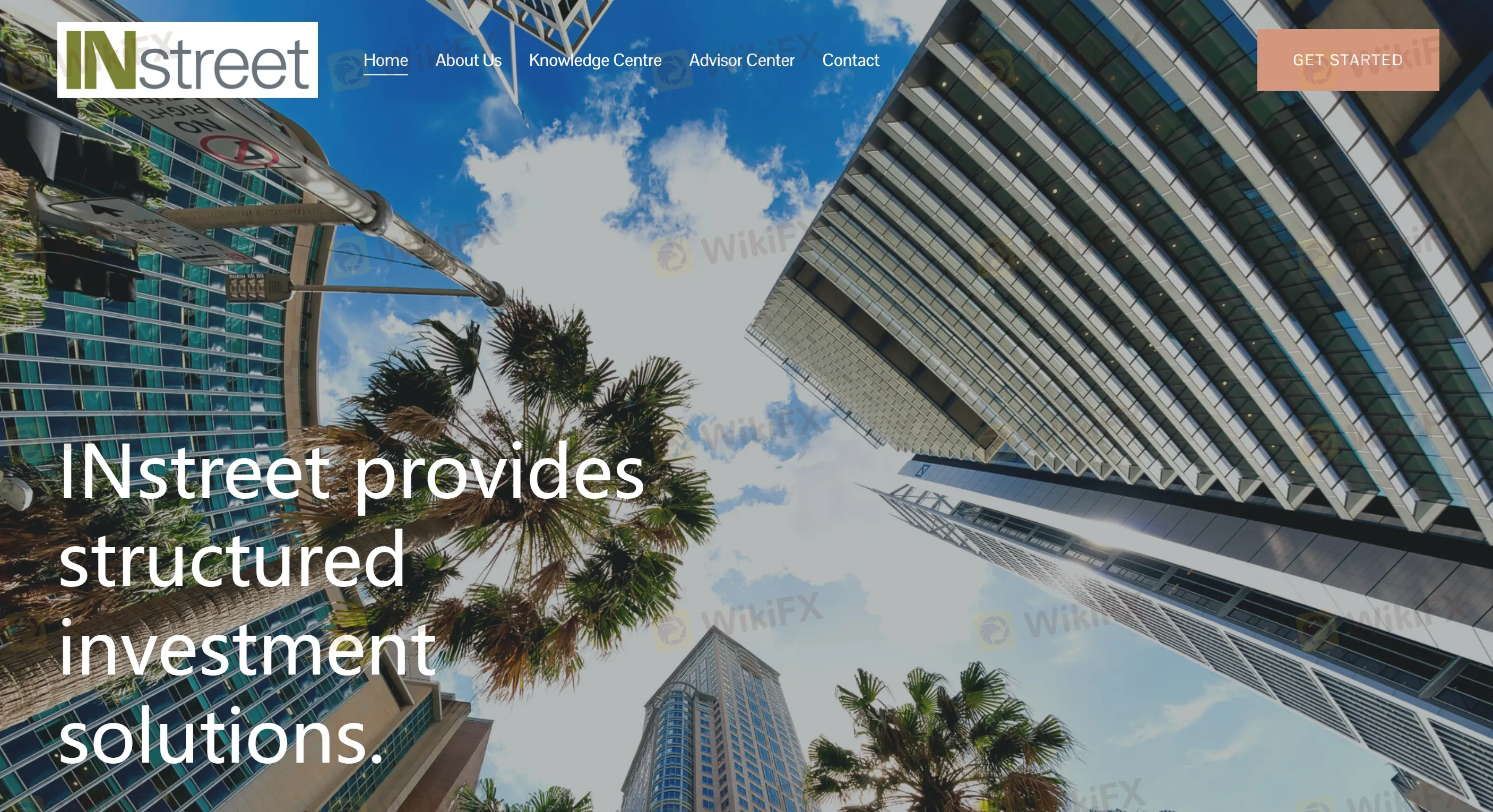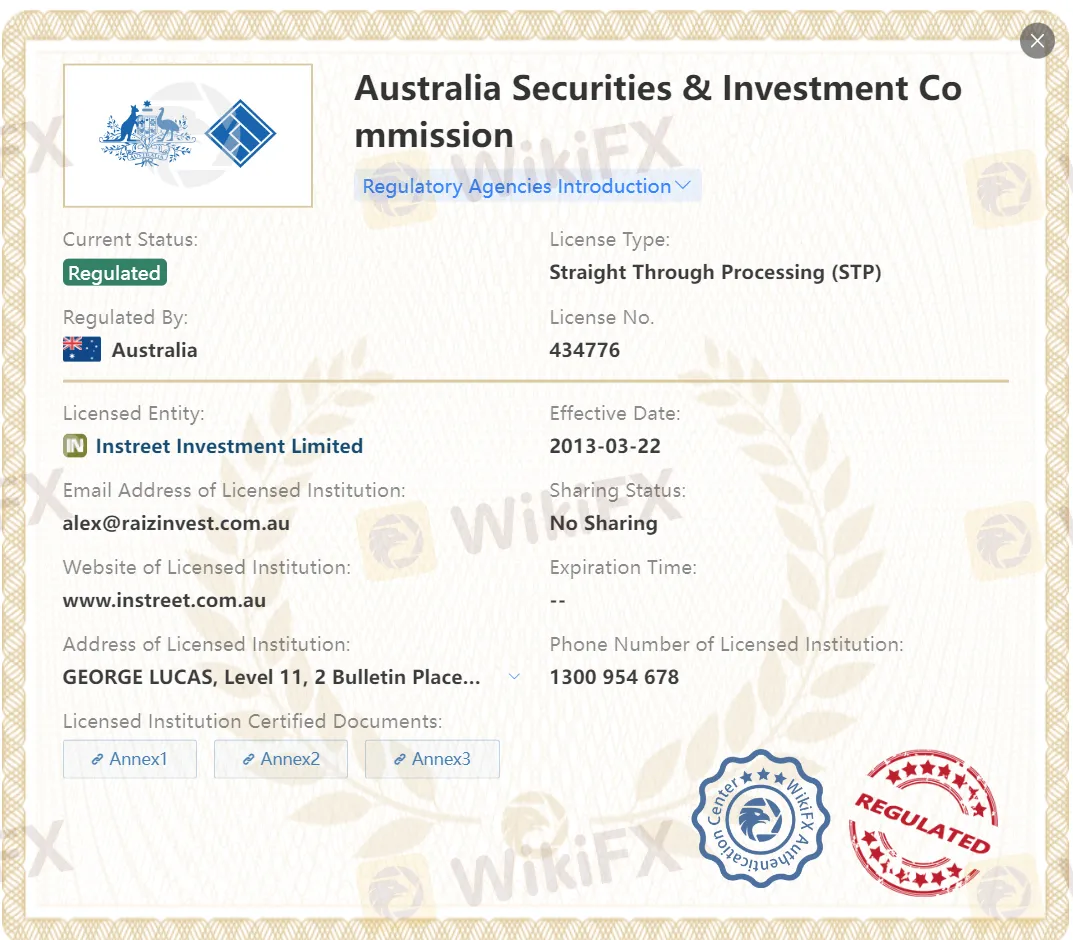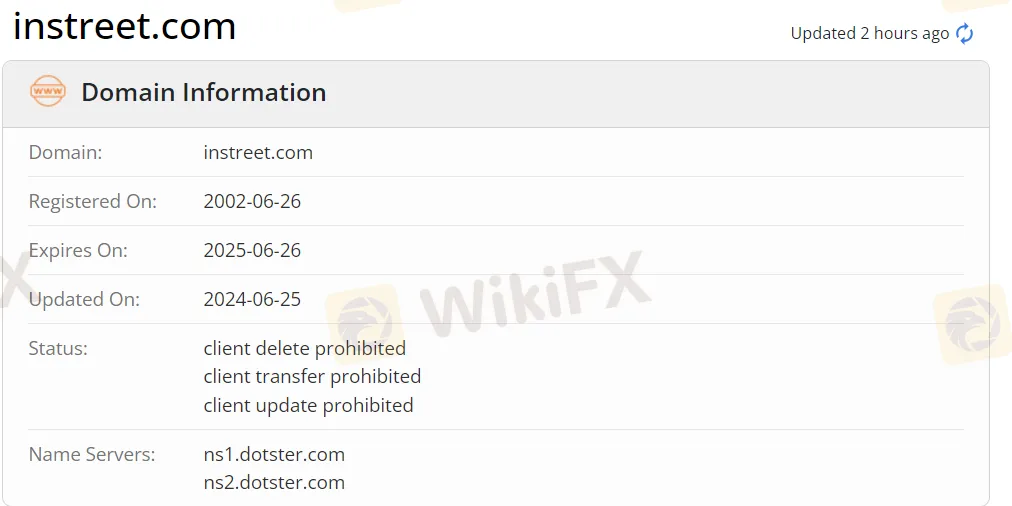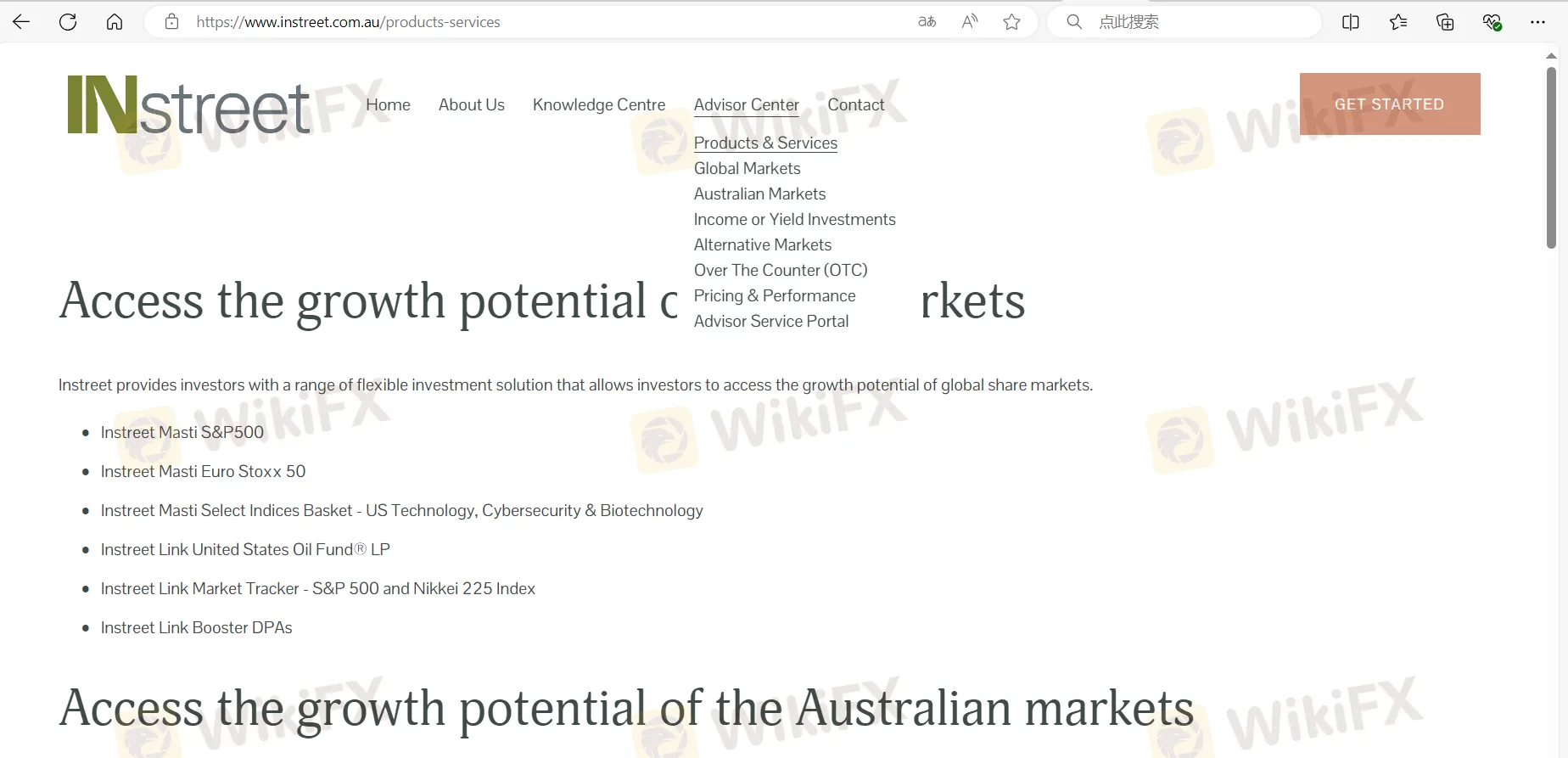회사 소개
| Instreet 리뷰 요약 | |
| 설립 연도 | 2002 |
| 등록 국가/지역 | 호주 |
| 규제 | ASIC |
| 시장 상품 | 파생상품, 옵션, 지수, ETFs |
| 데모 계정 | ❌ |
| 레버리지 | / |
| 스프레드 | / |
| 거래 플랫폼 | / |
| 최소 입금액 | / |
| 고객 지원 | 문의 양식 |
| 전화:+61 1300 954 678 | |
| 이메일: info@instreet.com.au | |
| X: https://x.com/gl_instreet | |
| YouTube: https://www.youtube.com/user/gsmhlucas | |
| LinkedIn: https://www.linkedin.com/in/gslucas | |
Instreet 정보
Instreet은 규제된 금융 서비스 제공업체로, Instreet Masti S&P500 및 Instreet Masti S&P/ASX200 등의 구조화된 제품을 제공합니다. Instreet은 고객에게 일반 소득 옵션 및 고급 투자자를 위한 맞춤형 솔루션도 제공합니다. 지식 센터를 통해 다양한 투자 주제를 다루는 교육 자료를 제공합니다.

장단점
| 장점 | 단점 |
| ASIC 규제 | 데모 계정 없음 |
| 다양한 투자 솔루션 | 거래 조건에 대한 정보 부족 |
| 다양한 연락 채널 | |
| 포괄적인 투자자 교육 자료 |
Instreet은 합법적인가요?
네. Instreet은 호주증권투자위원회(ASIC)의 면허를 소지하고 있으며, 라이선스 번호 434776으로 직통 처리(STP) 방식으로 운영하고 있습니다.
| 규제 기관 | 현재 상태 | 라이선스 보유 업체 | 규제 국가 | 라이선스 유형 | 라이선스 번호 |
| 호주증권투자위원회(ASIC) | 규제됨 | Instreet Investment Limited | 호주 | 직통 처리(STP) | 434776 |


Instreet에서 무엇을 거래할 수 있나요?
| 거래 가능 자산 | 지원됨 |
| 파생상품 | ✔ |
| 옵션 | ✔ |
| 지수 | ✔ |
| ETFs | ✔ |
| 외환 | ❌ |
| 상품 | ❌ |
| 주식 | ❌ |
| 암호화폐 | ❌ |
| 채권 | ❌ |























